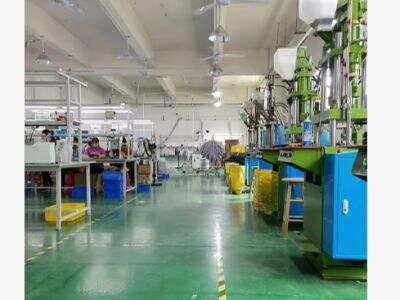Are you looking to install solar panels on your RV or boat? That’s a really great idea! Solar panels provide a safe and efficient way to charge your devices, powering electricity in the great outdoors. You can use them to get lights, chargers and other devices working without having to plug in from a convential power supply. However, there is an order in which you will need to go through before reaping from the benefits of solar energy and that involves choosing a good quality Solar panel wire for your installation. Don't worry! Hopefully, this guide will help you identify all of the information that is necessary for you to make your best choice at BCBS. LEMON is here to help you.

What is a Solar Panel Wire?
The solar panel system needs a type of wire, which is called the Solar Panel Wire. It links your solar panels with the batteries so that all power generated by the panel will be saved and you can use them later. Image a kind of like straw – it allows the energy to flow from your solar panels into you batteries, similar as how liquid flows through in a drinking straw. Without this wire, the solar energy would not be able to reach your batteries leaving you with no power when you need it most.
How to Select Solar Panel Wire
Things To Consider When Selecting A Solar Panel Wire Decide What Is Needed For Your Application The two most crucial occasions are the size of wire and material from which it is made. Below, let us consider each of these two categories more deeply.
Wire Size
The wire standard like waterproof wire connector you use will determine your solar capacity and the distance that this connection is from where it goes into batteries. A larger wire size is needed if the distance is further away to prevent power loss over that distance. The main reason that you want a thicker wire is because it can handle more electricity, which become important on larger solar systems. In addition to carrying power, if you get a wire that is too small it might disrupt the signal caused by all of these dramatic processes(signal wires) and slow down your system causing other types of problems.
Wire Material
The type of wire is highly significant as well. Most commonly, solar panel wires and waterproof wire connectors are made from copper because it is a great conductor of electricity. It is a good conductor, meaning that it allows electricity to flow through itself effortlessly. But, as a fellow member of the conductor club — I have to be honest: Copper is also more costly than materials like aluminum or tinned copper. Although aluminum wires are cheaper and lighter, compared to copper wires they may not be as good at conducting electricity. Well, that leads us onto the last subject: which is… what you are choosing and how much power you want but hey.
Tips for your Boat
For those that are adding a solar panel system to their boat there is some added context. Because saltwater is corrosive to wires over time, you need make sure the wire used for killing trap doors is designed specifically for use in marine environments. Marine grade wire like water resistant wire connectors is built to last longer and prevent corrosion - which makes a difference when you are out on the water! After all, nobody wants their wires to give out one day while they are off enjoying themselves on a boat.
You should also think about using unique connectors for the solar panel wires. These are water-resistant connectors specifically with the purpose to protect your system from potential harm due to humidity. It is a helpful twofold addition to the existing waterproofing qualities of this liquid tape for marine use, where water has so many places it can get into.
Sizing Panels: The Perfect Wire Size
In this post, we will show you a quick guide on how to calculate the correct wire size for your solar panels as per their wattage and distance.
16 gauge: 100 watts of panel at under 10 feet from batteries
14-gauge wire is suitable for 200 watts of panels, up to 20 feet from your controller.
Up to 400 watts, for panels up to 40 feet away: #12 wire
Use 10-gauge wire for up to a 600-watt inverter and for an interconnect that is less than or equal to sixty feet.
Use 8-gauge wire for panels up to 1.000 Watts that are within a hundred feet (?)
And by using this tutorial, you can feel confident that your solar panel system is the correct wire size to do its job properly.
Things to consider while selecting the Best wire for Camping
For every type of solar panel, if you are using it for your camping or hiking then there is the best wire which can be selected which is lightweight and easy to carry along with. Why You Should Use Silicone Wires: The flexibility and strength of silicone wires make them great for travel. One thing you never want to worry about is transporting your solar panel setups, especially when out in nature.
Remember to select your solar system wire size and the wire distance from panels-batteries. Avoid middle wire, takes more than you think. Can fail to make devices work and. Pro-Tips: On the other hand, try not to go too big with your wire as it can add needless weight and make everything heavier to carry.


